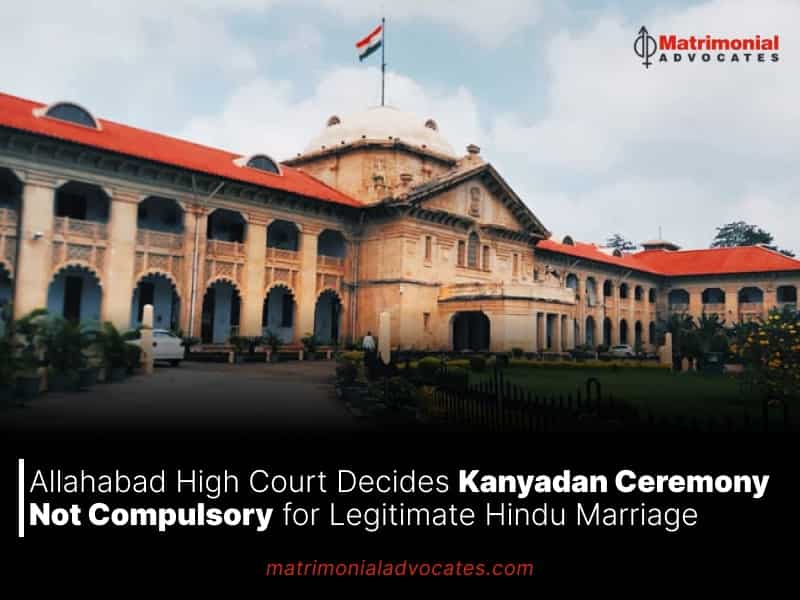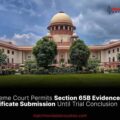
The Hindu Marriage Act does not say that kanyadan is essential for the solemnization of a Hindu marriage, the Court noted.
The recent pronouncement from the Allahabad High Court underscores that the customary practice of ‘Kanyadan,’ where the father ceremonially gives away his daughter to the groom, is not a prerequisite for the legality of a Hindu marriage. Justice Subhash Vidyarthi’s bench made this clarification in an order dated March 22, citing Section 7 of the Hindu Marriage Act, 1955, which delineates the necessary rites for Hindu marriages.
“Hindu Marriage Act merely provides saptpadi as an essential ceremony of a Hindu marriage and it does not provide that the ceremony of kanyadan is essential for solemnization of a Hindu marriage,” the Court said.
According to Section 7 of the Hindu Marriage Act, a Hindu marriage can be solemnized in accordance with the customary rites and rituals practiced by either party. It explicitly mentions that if these ceremonies involve the ‘saptpadi’—where the bride and groom take seven steps together around the sacred fire—the marriage becomes legally binding upon the completion of the seventh step. This provision came under scrutiny by the Allahabad High Court during a hearing concerning a petition seeking the reconsideration of certain witnesses in a case before a sessions court in Lucknow.
The petition arose due to alleged discrepancies in earlier witness statements regarding a marriage certificate presented as evidence for a marriage purportedly occurring in 2015. The petitioner argued that two witnesses, a woman, and her father, should be re-examined to determine if ‘kanyadan’ (the ceremonial giving away of the bride) was performed during the marriage, as it traditionally holds significance in Hindu marriages.
Despite the petitioner’s request, on March 6, the trial court rejected the plea to recall witnesses under Section 311 of the Code of Criminal Procedure (CrPC), which empowers courts to summon witnesses considered vital for a fair trial. Dissatisfied with this decision, the petitioner appealed to the High Court. However, the High Court upheld the trial court’s ruling, stating that establishing the occurrence of ‘kanyadan’ was unnecessary to validate the Hindu marriage under consideration.
“Whether the ceremony of Kanyadan was performed or not, would not be essential for the just decision of the case and, therefore, a witnesses cannot be summoned under Section 311 Cr.P.C. for proving this fact,” the Court held.
Furthermore, the Court stressed that the power conferred by Section 311 of the CrPC should not be exercised lightly or solely at the behest of a litigant.
“There can be no denial of the fact that this Court has ample power to summon any witness under Section 311 Cr.P.C., the power cannot be exercised in a casual manner on the mere asking of a litigant. This power has to be exercised merely only when it is essential to summon a witness for a just decision of a case,” the Court said.
Taking these statements into consideration, the Court dismissed the petition seeking the re-examination of witnesses.





